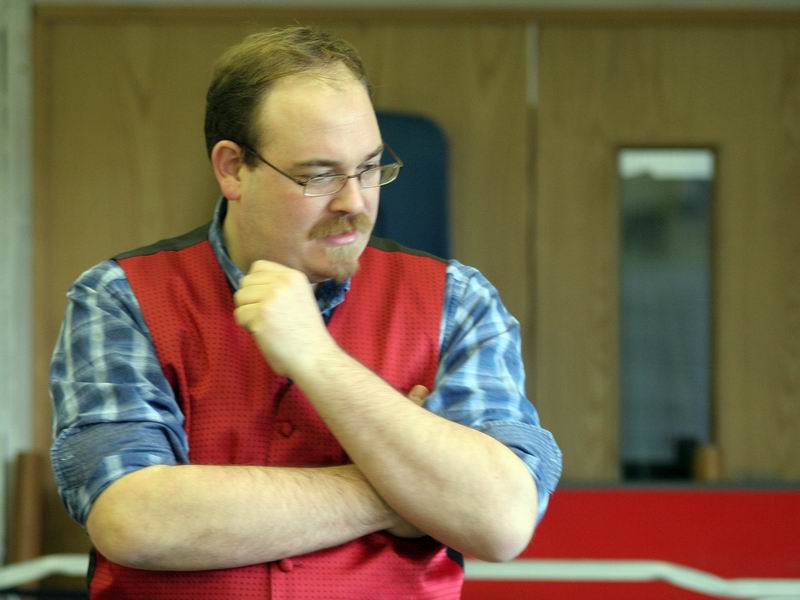
Alois looked around the small audience chamber from his throne. He barely knew who any of these people were, he noted, and indeed they barely knew him.
Of the monks in the room the only one he had any real knowledge of was the stooped figure of Brother Gumbolls, who had formerly been his teacher of Greek and Latin and now, Alois understood, was his secretary. Gumbolls had a reputation when Alois was a novice to be a consumer of gargantuan amounts of alcohol, be it beer, wine, brandy or anything else he could lay his hands on. By his slight swaying and somewhat slurred speech it seemed that nothing much had changed, despite the fact that it was just after Matins.
Gumbolls introduced the rest of the throng. There was Brother Krackenfart, the Chief Librarian, Brother Himmelstoss who headed up the Seminary, Brother Fassbinder, who had responsibility for the schools throughout the patrimony, Brother Thengen who looked after the breweries and Brother Richardt who oversaw the workings of the churches and satellite monasteries in the patrimony.
There were some secular figures too. A rather red faced individual, whose face was almost totally obscured by an enormous wig, was introduced as the Graf von Lindenburg, whilst a smaller individual, whose darting movements made him look to Alois like an overly-nervous sparrow, was apparently Michael Durffaendel, the treasurer of the Abbey. Looming behind Alois' throne was the battle-scarred figure of Lachen.
“Greetings my Brothers and fellow good Catholics,” Alois began, “I thank you with all my heart for your greetings and hope that, with the help of God, you will be my support as I wrestle with this most challenging of jobs that The Lord has seen fit to elevate me to.”
Then it all started.
Gumbolls blankly stated that the Lord had nothing at all to do with it and he had been elected by his fellow Brothers and ought to “do his best to recognise that fact.”
Thengen then asked what he was going to do about the Free City, whose production of beer was increasing and was damaging revenues. On asked by Alois what he suggested Thengen replied that all hops entering the Free City should be subject to crippling tariffs.
“Nonsense!” bellowed von Lindburg, who declared that the best way to deal with these scoundrels was by the use of force and the Abbey should send in it’s troops.
“What, all sixty of them?” queried Lachen.
“They all should be burned as heretics, that what we should have done centuries ago…” the icy voice of the aesetic Himmelstoss cut through the general hubbub.
“But this Abbey has not been responsible for burning someone since 1579!” responded a genuinely shocked Krackenfart.
“One might say we stopped too soon” Himmelstoss responded.
The conversation overflowed then into many separate arguments.
“Brothers, brothers,” cried an anguished Alois, standing from his chair, “can we not put aside this language of conflict and respond with the Peace of God…?”
“To hell with the Peace of God,” replied Thengen, savagely, “this is Abbey revenue”
“And remember who put you in that Throne…” followed Gumbolls
“Just sit there, read some books and leave the governance of the patrimony to us, I think that would be the best for all concerned” finished von Lindburg.
Alois slumped, disbelieving, into his chair. The general yammer of voices washed over him as he realised the futility of his position: all his councillors and advisors were little more than Godless cynics, far removed from His Good Grace and clearly buried in the secular world. His mind raced, despair mounted upon agony, until a quiet voice in his ear said: “bring the audience to an end.” It was Lachen. Alois, appearing like a wounded man, could only wave at one of the Novices who announced it for him. The crowd shuffled, still arguing, out of the chamber.
“Not you,” Alois croaked, pointing at Gumbolls. “There are letters to reply to from friendly rulers on my accession…”
“Indeed Father-Abbot. And?” Gumbolls replied.
Alois looked at him uncertainly and then gave in and waved him away.
Clearly, of all the many duties that Gumbolls had, writing letters was not one of them.

3 comments:
The Chinese curse of "may you live in interesting times" comes to mind.
I'm looking forward to more . . . please keep it up.
-- Jeff
Carry on: I like this novel!
Jean-Louis
His Majesty Leopold IV sends his congratulations on your appointment and assures you of the friendly intentions of the Kingdom of Wittenberg.
-----------------------------
Fraternal Greetings from the Monastery of Alt-Wittendorf, congratulation on your appointment.
Bother James
-----------------------------
-- Allan
http://tidders-kingdomofwittenberg.blogspot.com/
Post a Comment